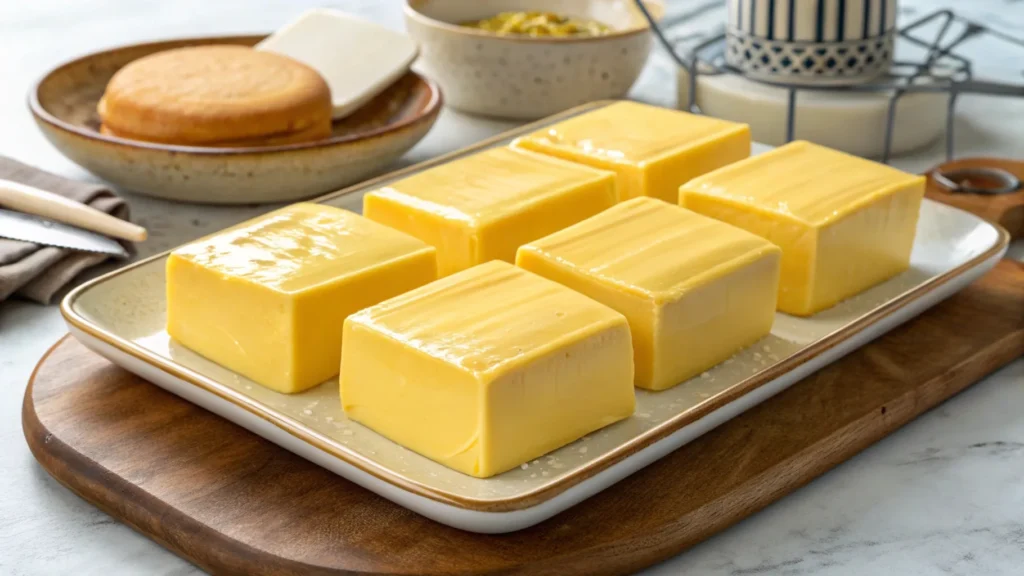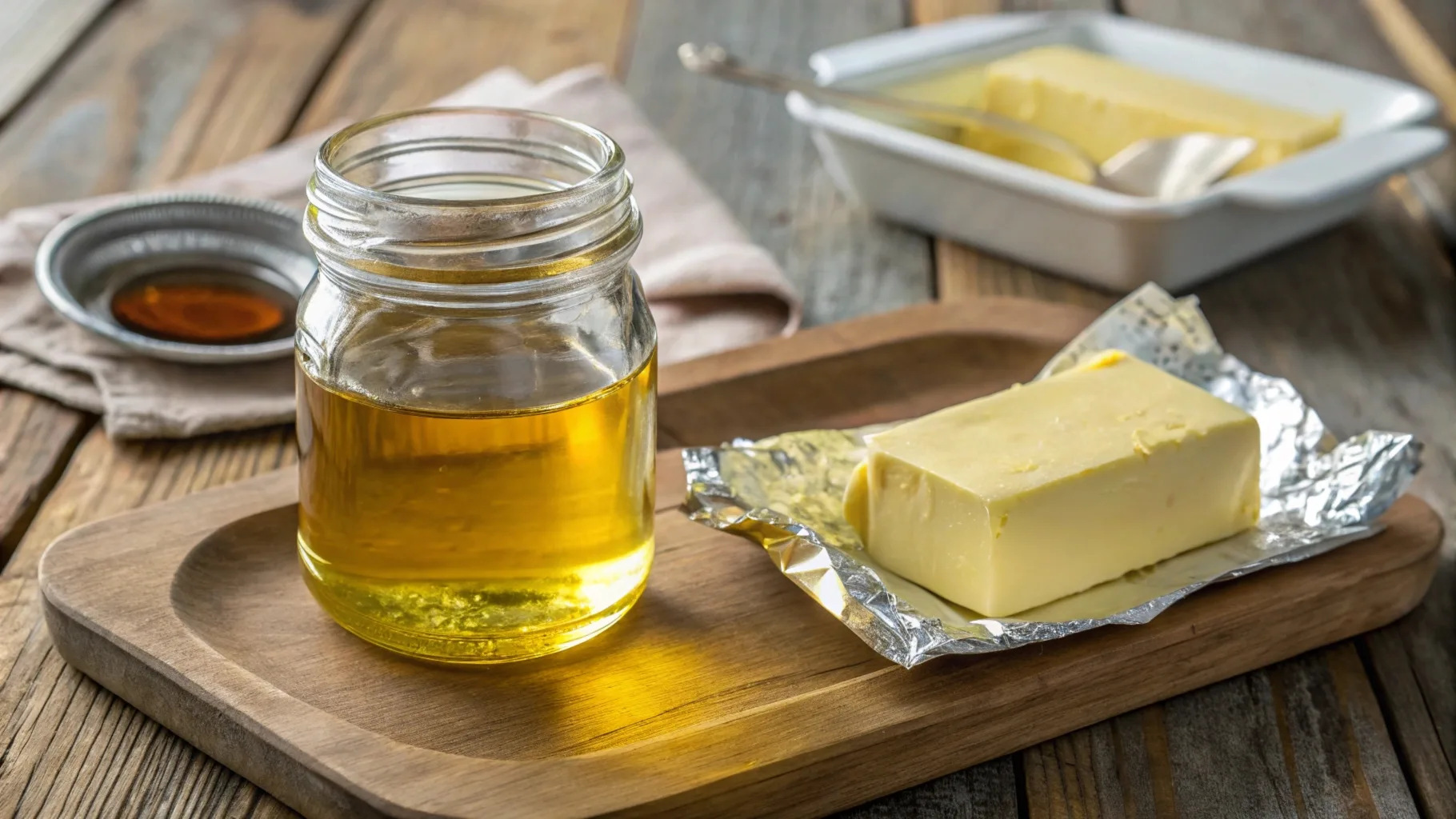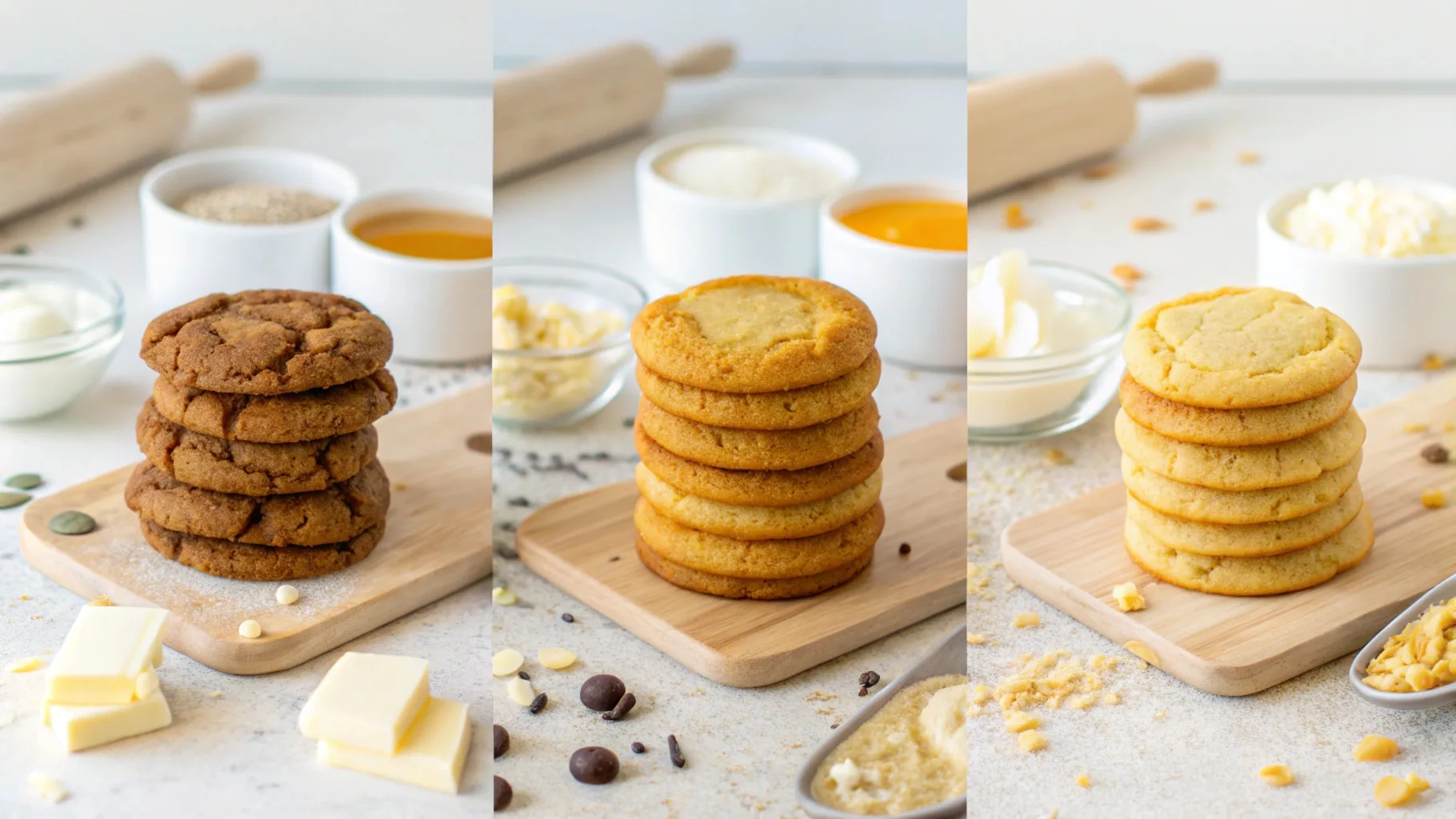Introduction
Cookies—they’re the sweet treat that can turn any day around, right? But if you’re diving into the world of baking (or just trying to make the perfect dessert in a pinch), you’ve probably stumbled upon the big debate: butter or oil? Specifically, when it comes to cake mix cookies, which one’s the ultimate champion? Should you stick with the creamy richness of butter, or go for the moist, easy-to-mix qualities of oil?
In this article, we’re breaking it all down—like seriously, crumb by crumb. We’ll talk about the flavor, texture, and even how these two baking heavyweights affect your cookies’ structure. Whether you’re a baking newbie or a seasoned pro, you’ll walk away knowing exactly which ingredient deserves a spot in your mixing bowl. And hey, we’ll even toss in a few tips for experimenting. Ready to dig in? Let’s do this!
Understanding Butter in Cake Mix Cookies

Butter’s Role in Baking
Butter isn’t just an ingredient; it’s like a little miracle worker in the world of cookies. It brings richness and adds a subtle creamy flavor that makes cookies downright irresistible. Plus, butter’s solid state (when chilled) means it helps cookies hold their shape during baking. Ever notice those picture-perfect golden-brown edges? Yep, thank butter for that.
Pros of Using Butter
Butter brings a lot to the table. It gives cookies a flaky texture and an unmistakable homemade flavor that oil just can’t replicate. If you’re aiming for cookies that taste like grandma’s (the ones that practically melt in your mouth), butter’s your best bet. It also helps achieve that golden-brown finish everyone loves—seriously, it’s like a badge of honor for bakers.
Cons of Using Butter
But (and there’s always a “but,” isn’t there?), butter can be a bit of a diva. Leave it out too long, and it gets too soft, which can lead to cookies spreading too much. Oh, and if you don’t cream it just right with sugar, you might not get the fluffiness you’re after. Butter can also be pricier than oil—just sayin’.
The Case for Oil in Cake Mix Cookies
Oil’s Function in Baking
When it comes to baking, oil plays the role of the quiet hero. It doesn’t get as much attention as butter, but it’s a game-changer for texture. Unlike butter, oil is a liquid at room temperature, which helps lock in moisture. This means your cookies won’t dry out, even after a couple of days on the counter (if they last that long, let’s be real). For cake mix cookies, oil creates a dense and chewy texture, which is a win for anyone who loves soft cookies.
Benefits of Using Oil
One of the biggest perks of using oil in cake mix cookies is its simplicity. No need to wait for it to soften, and mixing it in is a breeze. Plus, oil is more budget-friendly than butter—so if you’re baking on a dime, it’s a solid option. And let’s not forget the moisture factor. If you’ve ever had cookies that taste better on day two, there’s a good chance oil was involved.
Another bonus? Oil is versatile. You can use vegetable oil, canola oil, or even something like coconut oil for a subtle flavor twist. In fact, some people swear by olive oil for a hint of savory goodness in sweet recipes.
Drawbacks of Using Oil
Of course, there are trade-offs. One downside of oil is that it doesn’t bring much flavor to the table. While butter has a rich, creamy taste, oil is, well, kind of bland. This can be a dealbreaker if you’re aiming for that buttery cookie vibe.
Another issue is structure. Cookies made with oil tend to spread more during baking, which can lead to thinner cookies. If you’re going for thick, bakery-style cookies, you might need to tweak the recipe or chill the dough before baking.
So, is it better to use butter or oil in cake mix cookies? It really depends on what you’re craving—soft and moist or rich and buttery.
Comparing Butter and Oil for Cake Mix Cookies

Texture Differences
The most noticeable difference between butter and oil in cake mix cookies is the texture. Butter creates cookies with crisp edges and a soft center, perfect for those who love a little crunch with their chew. On the other hand, oil delivers cookies that are consistently soft and chewy throughout. If you prefer a melt-in-your-mouth experience, oil might be your go-to.
Flavor Implications
Here’s where butter really shines. It brings a depth of flavor that oil just can’t compete with. Imagine biting into a cookie and getting that creamy, slightly nutty taste—classic butter! Oil, while it keeps cookies moist, doesn’t contribute much in the flavor department. However, you can experiment with flavored oils like coconut or even avocado oil to add a subtle twist.
Nutritional Considerations
Health-wise, the choice between butter and oil depends on your priorities. Butter contains saturated fats and cholesterol, while most oils are lower in saturated fat and completely cholesterol-free. If you’re looking to make slightly healthier cookies, oil might be the better pick. That said, moderation is key with either choice.
Situational Recommendations
So, is it better to use butter or oil in cake mix cookies? Well, it depends on the occasion! If you’re baking for a party and want rich, flavorful cookies that steal the show, go for butter. But if you’re baking ahead and need cookies that stay soft and fresh for days, oil is the MVP.
Experimenting with Both Options
How to Substitute Butter for Oil and Vice Versa
Ever wondered if you can swap butter for oil—or the other way around? The answer is yes, but you’ll need to tweak the amounts. A general rule of thumb is to use three-quarters the amount of oil when replacing butter. For example, if a recipe calls for 1 cup of butter, go with ¾ cup of oil.
Want to go the other direction? Use about 1¼ cups of butter for every cup of oil. Keep in mind, though, butter needs to be softened before mixing—don’t skip this step, or you might end up with lumps!
Tips for Mixing Both in One Recipe
Why not have the best of both worlds? Combining butter and oil can give you cookies that are both flavorful and moist. Use half the amount of each and watch your cookies come out with a perfect balance of texture and taste.
If you’re looking to troubleshoot cookie problems, you might also enjoy our guide: Why Did My Cool Whip Cookies Turn Out Flat?
FAQs
Can I Use Oil Instead of Butter in Cake Mix Cookies?
Absolutely, you can! Many bakers find themselves out of butter and wonder if oil can step in—and the answer is yes. The substitution is simple: use ¾ cup of oil for every cup of butter called for in the recipe. But let’s be honest—is it better to use butter or oil in cake mix cookies? That depends on what you’re after.
Oil gives cookies a softer, chewier texture, and they’ll stay fresh for longer. However, if you’re after that rich, buttery flavor, you might want to stick with butter. For best results, try experimenting with flavored oils like coconut or olive to give your cookies a unique twist!
How Do Butter and Oil Affect Cookie Spread?
The fat you choose impacts how much your cookies spread while baking. Butter, with its lower melting point, causes cookies to spread out more quickly in the oven. This can result in thinner, crisper edges with a soft center.
Oil, being liquid, makes the dough easier to mix but also tends to produce cookies that spread less. This means they’ll be thicker and more uniform in shape. Whether you prefer a flatter cookie or a thicker, doughier one, the choice of fat makes all the difference.
What’s the Healthiest Option?
If you’re keeping an eye on nutrition, oil might be the better pick. Vegetable oils like canola and sunflower are cholesterol-free and lower in saturated fats compared to butter. However, not all oils are created equal—look for options labeled “cold-pressed” or “unrefined” for added health benefits.
Butter, while higher in saturated fat, does contain some vitamins like A, D, and E. If health is a priority, moderation is key with either choice.

Conclusion
Making the Final Choice
So, is it better to use butter or oil in cake mix cookies? The answer lies in what you’re craving. For cookies bursting with flavor and a crispy edge, butter is the clear winner. But if you’re all about softness and want cookies that stay fresh for days, oil takes the crown.
Encouragement to Experiment
At the end of the day, there’s no right or wrong answer—just different ways to satisfy your sweet tooth. Why not try both? Bake one batch with butter and another with oil, and let your taste buds decide. And if you’re feeling adventurous, mix the two for the best of both worlds.
For more baking inspiration, check out our guide on Cake Mix Cool Whip Cookies—it’s packed with tips to elevate your cookie game.
No matter which fat you choose, the most important ingredient is love (cheesy, but true). So grab your apron, fire up the oven, and get baking—your perfect cookie awaits!




1 thought on “Butter or Oil in Cookies: Which Is Better for Cake Mix?”